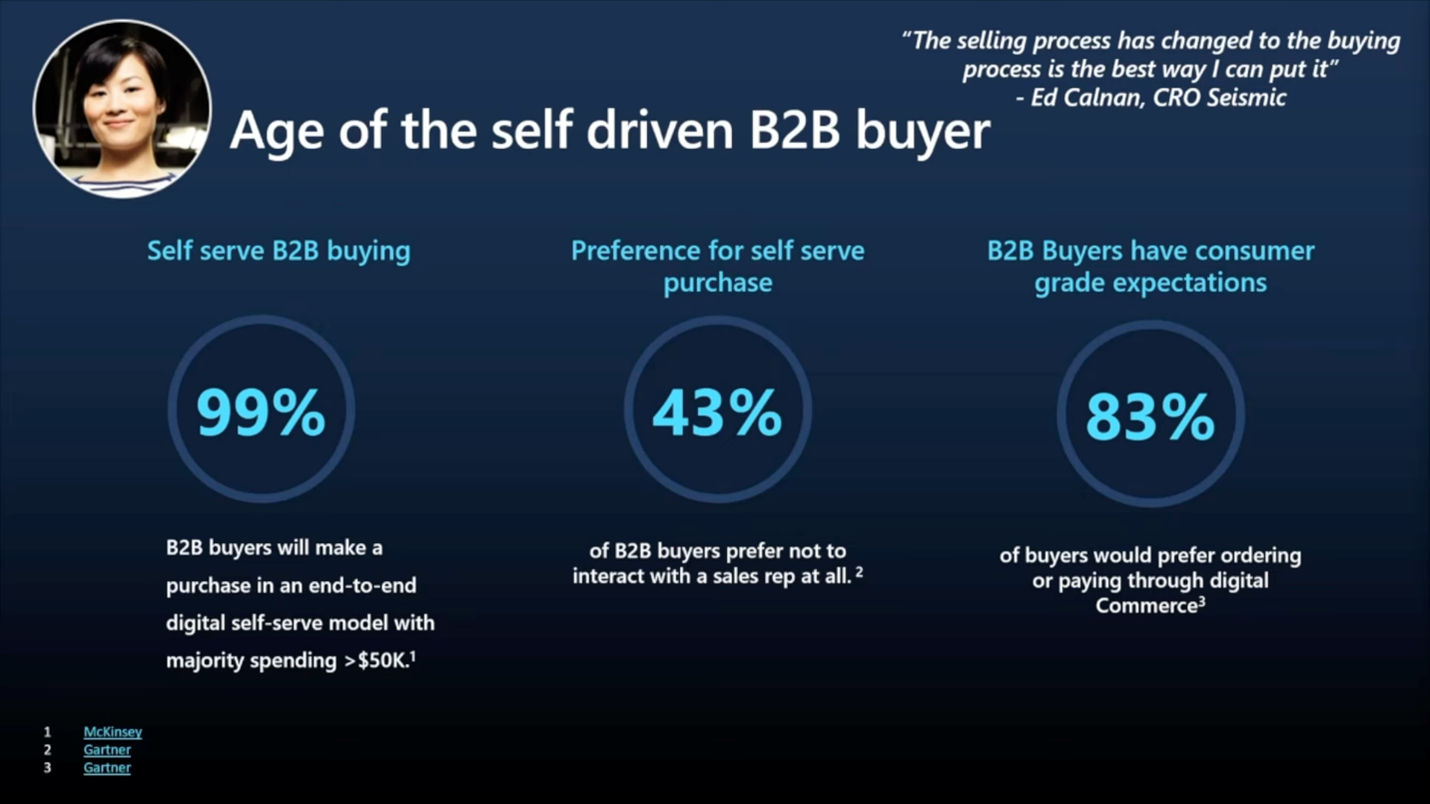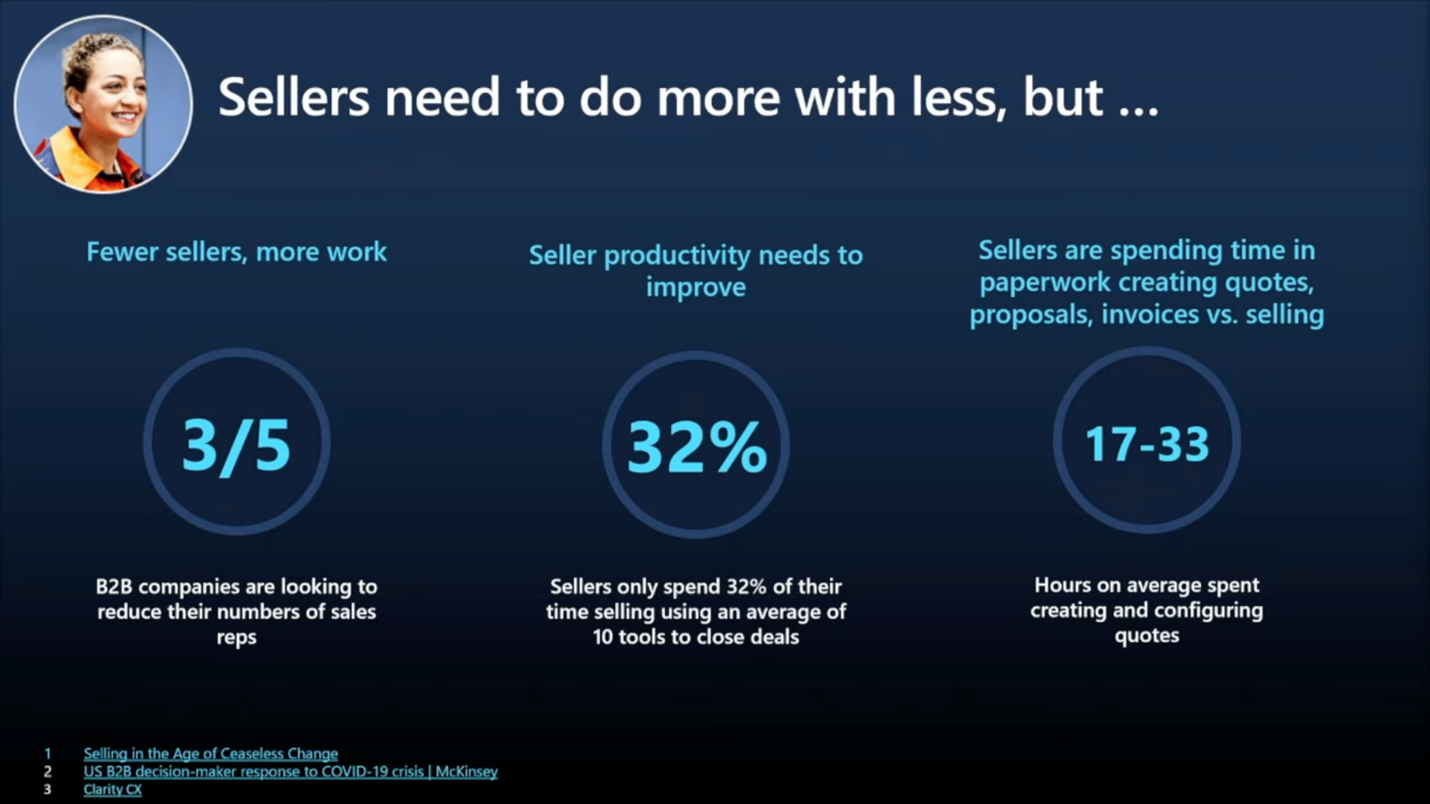TechTalk: Extend Dynamics 365 Supply Chain Management for an AI-powered B2B digital selling experience using Dynamics 365 Commerce part 2
The digital transformation in B2B commerce is revolutionizing the way manufacturers and distributors conduct business. To stay competitive in today's fast-paced global market, companies must do more with less, using AI, data, and advanced collaboration strategies. Dynamics 365 Supply Chain Management (SCM) integrated with Dynamics 365 Commerce offers a comprehensive platform for creating an AI-powered B2B digital selling experience, transforming the way businesses manage their supply chain and engage with customers.
We based this article on a TechTalk that you can find online in the Dynamics 365 channel on YouTube.
The shift toward business-to-business digital commerce
As the global landscape shifts, companies are facing increasing pressure to optimize resources and improve operational efficiency. Modern buyers expect seamless, self-service options, allowing them to make purchases online, 24/7, without interacting with a sales representative. This shift comes from advancements in AI and data analytics, which allow businesses to offer more personalized and efficient digital experiences.
With B2B commerce, businesses can automate processes such as order entry, customer service, and inventory management. This not only cuts costs but also enables companies to gain valuable insights into customer behavior, helping them make data-driven decisions that lead to upselling and cross-selling opportunities, ultimately driving revenue growth.
Dynamics 365 Commerce is a unified solution
Dynamics 365 Commerce integrates with other Dynamics 365 finance and operations apps to create a seamless ecosystem that connects B2B portals with supply chain capabilities. Through Commerce Scale Unit (CSU), data flows between the B2B portal and finance operations, enabling businesses to manage orders, customer information, and payments all in one platform.
The B2B portal is fully operational and can be tailored to suit specific business needs. It provides end-to-end functionality, from onboarding new business partners to handling advanced order fulfillment through warehouse management systems. This unified platform ensures that businesses can manage their entire supply chain, from procurement to final delivery, with real-time visibility into inventory and order status.
Enhancing the buying experience
A key feature of the Dynamics 365 Commerce B2B solution is its ability to provide a personalized, self-service buying experience that mirrors the simplicity of B2C commerce. Customers can browse products, place orders, and manage their accounts online with ease. Businesses can also offer custom catalogs, tailored pricing, and advanced payment options, including the ability for sales representatives to place orders on behalf of customers.
The following image illustrates interesting numbers for three aspects of the B2B e-commerce scene in the age of the self-driven B2B buyer.
Dynamics 365 supports several ordering methods, such as bulk orders, matrix ordering for products with multiple variants, and order templates for frequently purchased items. This flexibility allows businesses to cater to the unique needs of B2B buyers, who often require large quantities of products or have complex purchasing workflows.
Apply AI for inventory and order management
The integration of AI into Dynamics 365 Commerce enhances inventory visibility and order management capabilities. With the Inventory Visibility service, businesses can access real-time inventory data across all channels, ensuring accurate stock levels and reducing the risk of lost sales or backorders. This AI-powered tool allows for dynamic inventory management, adjusting stock levels based on demand forecasts and order history.
Additionally, AI-driven features such as Copilot help businesses create engaging product narratives and personalized marketing content, further enhancing the customer experience. By automating content creation and streamlining media management, businesses can ensure that their digital storefront is always up-to-date and aligned with customer preferences.
The benefits of indirect selling
For businesses operating in industries such as consumer packaged goods (CPG), indirect selling through distributors is a common model. Dynamics 365 Commerce supports this business model by enabling manufacturers to onboard distributors and track inventory across multiple locations. Distributors, in turn, can manage orders and provide customers with an easy-to-use digital platform for placing orders.
The following image illustrates key statistics for three major points illustrating the challenges faced by sales personnel in B2B companies. It presents three major points:
- 3 out of 5 B2B companies are reducing their sales teams, indicating fewer sellers are handling more work.
- Only 32% of a seller's time is spent on selling activities, with the rest consumed by using an array of tools to close deals.
- Sellers spend between 17 to 33 hours on average just to create and configure quotes, instead of engaging directly in sales.
By integrating inventory data from distributors, manufacturers gain greater visibility into demand at the local level, allowing them to proactively manage stock levels and avoid missed sales opportunities. This indirect selling model helps businesses expand their reach, improve customer satisfaction, and optimize their supply chain.
Advanced capabilities and future developments
Dynamics 365 Commerce is continuously evolving, with new capabilities in development to further enhance the B2B selling experience. Upcoming features include the ability to support multiple shipping addresses within a single order, custom delivery instructions, and advanced promotional tools that allow businesses to create targeted marketing campaigns for specific customer groups.
Additionally, improvements to the onboarding process simplify account creation for new business partners, making it easier for companies to expand their customer base. The integration of Copilot capabilities continues to evolve, providing businesses with more AI-driven tools for content creation and customer engagement.
Conclusion
The integration of Dynamics 365 Supply Chain Management with Dynamics 365 Commerce offers businesses a powerful platform for creating a seamless, AI-powered B2B digital selling experience. By using advanced tools for inventory management, order processing, and customer engagement, businesses can optimize their operations, reduce costs, and drive revenue growth. As the digital landscape continues to evolve, Dynamics 365 Commerce remains at the forefront of innovation, enabling businesses to stay competitive in an increasingly complex market.
For more information on how to extend your Dynamics 365 SCM capabilities for B2B digital selling, visit the official Microsoft Dynamics 365 website and explore the wide range of resources available.
Related information
You can use the following resources to learn more about Dynamics 365.
- TechTalk: Extend Dynamics 365 Supply Chain Management for an AI-powered B2B digital selling experience using Dynamics 365 Commerce (part 1)
- TechTalk: Set up business-to-business digital selling with Dynamics 365
- Set up a B2B e-commerce site
- What are the Dynamics 365 TechTalk videos?
- TechTalk on the Dynamics Community website
- Dynamics 365 channel on YouTube


